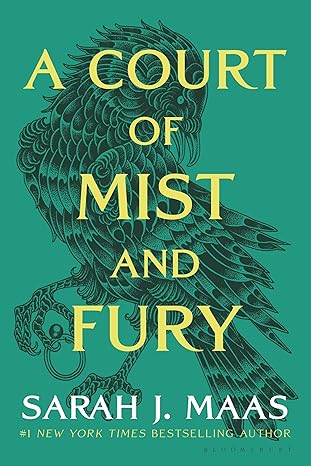Understanding Screenplay Quality: Debunking the ‘99% Garbage’ Myth

In the world of screenwriting, a common refrain is that ‘99% of screenplays are garbage.’ But is this really true? Andrew Zinnes, an expert in the field, offers insight into what makes a screenplay stand out and why many scripts fall short. This blog explores the nuances of screenplay quality and the spectrum of writing talent.
Table of Contents
- The Origin of the ‘99% Garbage’ Notion
- Andrew Zinnes’ Experience with Screenplays
- The Spec Script Market Boom
- Recognizing Good Writing Instinctively
- The Thanksgiving Experiment
- The Energy of a Good Script
- Themes in Successful Screenplays
- The Evolution of Criticism in Screenwriting
- The Role of Social Media and Trolls
- The Filtering Process in Script Development
- Understanding the Spectrum of ‘Okay’ Scripts
- FAQ: What Makes a Screenplay Stand Out?
The Origin of the ‘99% Garbage’ Notion
The phrase ‘99% of screenplays are garbage’ has become a popular mantra within the industry. This notion likely stems from a combination of frustration and the sheer volume of scripts circulating in Hollywood. Many writers, producers, and readers have encountered countless scripts that simply do not meet the quality standards necessary for production.
In reality, the percentage is more nuanced. While there are indeed poorly written scripts, a significant number fall into the ‘okay’ category. These scripts may have redeeming qualities or interesting characters, but they often lack the spark needed to captivate audiences and industry professionals alike.

Andrew Zinnes’ Experience with Screenplays
Andrew Zinnes has read thousands of scripts throughout his career. His experience provides him with a unique perspective on what separates the exceptional from the mediocre. During the height of the spec script market in the nineties and early two thousands, Zinnes was inundated with submissions.
This era, sparked by successes like Shane Black’s screenplays, saw a surge in aspiring writers hoping to replicate that success. Zinnes recalls receiving dozens of scripts weekly, each needing thorough evaluation. This extensive exposure has honed his ability to recognize quality writing almost instinctively.

The Spec Script Market Boom
The nineties marked a significant boom in the spec script market. Writers were inspired by high-profile successes, leading to an influx of submissions. Production companies, eager for the next blockbuster, were overwhelmed by the sheer volume of incoming scripts.
During this time, Zinnes observed that while many scripts were competent, only a few truly stood out. The challenge was not just finding a good script, but one that had the potential to resonate with both audiences and studios.

Recognizing Good Writing Instinctively
Good writing often elicits an immediate reaction. Zinnes emphasizes that the ability to recognize quality writing is an innate skill. Readers develop a sense of flow and engagement through years of consuming various forms of storytelling.
When approaching a new screenplay, experienced readers can often gauge its quality within the first few pages. The characters, dialogue, and narrative structure reveal much about the script’s potential. This instinctive recognition is crucial in a fast-paced industry where time is limited.
The Thanksgiving Experiment
A memorable anecdote from Zinnes’ experience illustrates his point about instinctive recognition of good writing. During a Thanksgiving gathering, he shared scripts with his sister, who had no formal training in screenwriting. As she read through the scripts, her reactions were telling.
One script left her frustrated, while another captivated her. The difference was stark. The engaging script was none other than ‘American Pie,’ which she found hilarious and relatable. This experiment highlighted that even a novice could discern quality writing based on flow and energy.

The Energy of a Good Script
A good script carries an undeniable energy. Zinnes points out that the best scripts are often those that evoke strong emotions and reactions from readers. This energy is reflected in well-crafted dialogue, engaging character arcs, and a compelling narrative.
In the case of ‘American Pie,’ the comedic situations and relatable themes resonated with his sister, proving that effective writing transcends formal training. It’s about creating a connection with the audience through relatable experiences and humor.

Themes in Successful Screenplays
Successful screenplays often revolve around universal themes that resonate with audiences. Themes such as love, friendship, and the quest for identity are timeless and relatable.
For instance, a well-crafted screenplay might explore the complexities of relationships, using humor and drama to highlight the human experience. By weaving these themes throughout the narrative, writers create stories that linger in the minds of viewers long after the credits roll.

Character Development
Character arcs play a crucial role in conveying themes. A protagonist’s journey often reflects the central theme, showcasing their growth or transformation.
For example, in a coming-of-age story, the main character may start as naive and end up wiser, embodying the theme of personal growth. This character development allows audiences to connect emotionally, making the theme more impactful.

Conflict and Resolution
Conflict is another essential element that propels themes forward. It creates tension and drives the narrative, forcing characters to confront their challenges.
Successful screenplays often resolve conflicts in a way that reinforces the theme, providing closure and satisfaction. Whether it’s a romantic comedy or a dramatic thriller, the resolution should echo the underlying messages of the story.

The Evolution of Criticism in Screenwriting
Screenwriting criticism has evolved significantly over the years. Initially, feedback was largely subjective, based on personal taste and industry trends.
Today, however, there are more structured approaches to script analysis. Critics and readers now often look for specific elements such as structure, character development, and dialogue quality. This shift has led to a more nuanced understanding of what makes a screenplay successful.
From Intuition to Analysis
In the past, many readers relied on intuition to gauge a script’s quality. Now, there’s a greater emphasis on analytical frameworks.
Writers are encouraged to understand the mechanics of storytelling, which allows them to craft more compelling narratives. This analytical approach benefits both writers and critics, fostering a more informed dialogue about screenwriting.

The Role of Social Media and Trolls
Social media has transformed how screenplays are discussed and critiqued. Platforms like Twitter and Reddit allow for immediate feedback, but they also breed negativity.
Trolls often take advantage of anonymity to voice harsh criticisms, which can discourage aspiring writers. While constructive criticism is valuable, the prevalence of toxic commentary can overshadow genuine discussions about screenwriting quality.

Positive Engagement Strategies
To combat negativity, writers and industry professionals are encouraged to engage positively on social media. Sharing insights, celebrating successes, and offering constructive feedback can foster a supportive community.
By focusing on uplifting discourse, the industry can counteract the detrimental effects of trolling and create a more encouraging environment for writers.

The Filtering Process in Script Development
The script development process involves multiple layers of filtering, ensuring only the most promising scripts advance. This process is essential for identifying high-quality material.
Initially, scripts are screened by agents and managers, who evaluate their potential before submitting them to studios. Once at a studio, development executives conduct further analysis, often relying on reader reports to guide their decisions.

Reader Reports
Reader reports serve as a crucial tool in the filtering process. These reports provide insights into a script’s strengths and weaknesses, helping executives make informed decisions.
Effective reader reports highlight key aspects such as character development, pacing, and marketability. This structured feedback aids in determining whether a script is worth pursuing further.

Understanding the Spectrum of ‘Okay’ Scripts
Not all scripts fall neatly into ‘good’ or ‘bad’ categories. Many exist in the ‘okay’ realm, showcasing potential but lacking the execution needed to stand out.
These scripts may have interesting concepts or characters but fail to capture the reader’s imagination fully. Understanding this spectrum helps writers identify areas for improvement in their work.

Identifying Strengths and Weaknesses
Writers should focus on recognizing the strengths and weaknesses within their scripts. An ‘okay’ script might excel in dialogue but falter in pacing or structure.
By pinpointing these elements, writers can refine their work and elevate it from ‘okay’ to ‘great,’ ultimately increasing their chances of success in the competitive industry.

FAQ: What Makes a Screenplay Stand Out?
Many aspiring screenwriters wonder what sets exceptional screenplays apart from the rest. Here are some common questions and answers regarding screenplay quality:
What are the key elements of a standout screenplay?
A standout screenplay typically features strong character development, a compelling plot, and engaging dialogue. It also adheres to proper structure while allowing for creativity and originality.

How important is theme in a screenplay?
Theme is crucial as it provides depth and resonance to the story. A well-defined theme helps guide character choices and plot developments, making the screenplay more impactful.

Can a screenplay be too unique?
While originality is important, a screenplay must also be accessible to its audience. Striking a balance between unique concepts and relatable themes is critical for success.

What role does feedback play in the writing process?
Feedback is invaluable in the writing process, providing fresh perspectives and identifying blind spots. Constructive criticism can help writers refine their scripts and enhance overall quality.

How do I know if my screenplay is ready for submission?
A screenplay is ready for submission when it has undergone thorough revisions and feedback cycles. Additionally, it should meet industry standards in terms of formatting and structure.



















